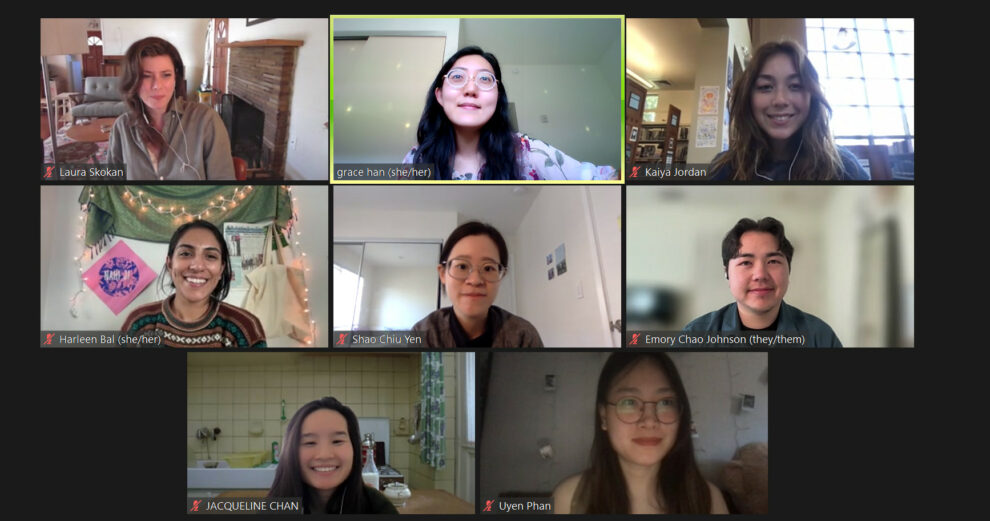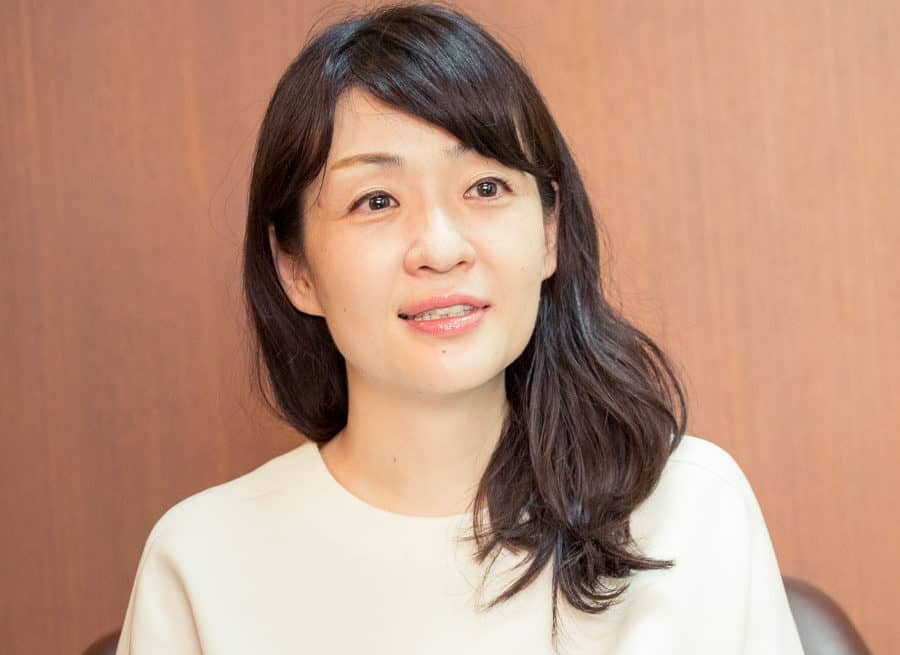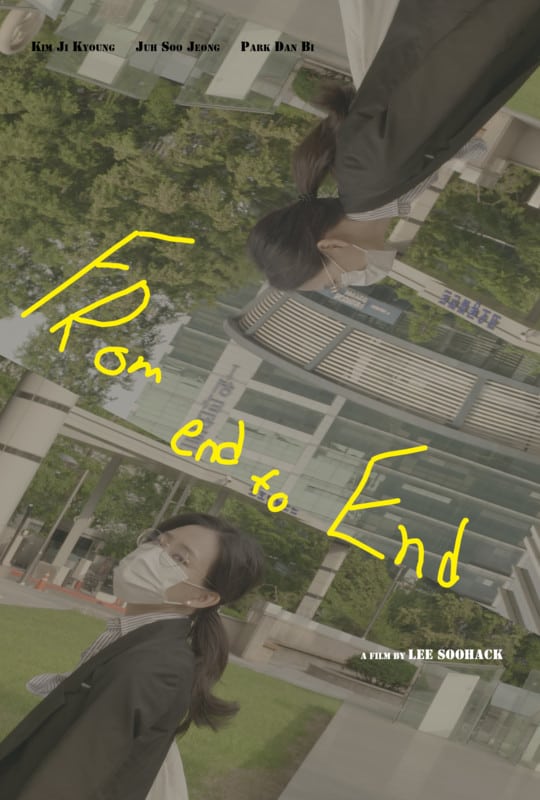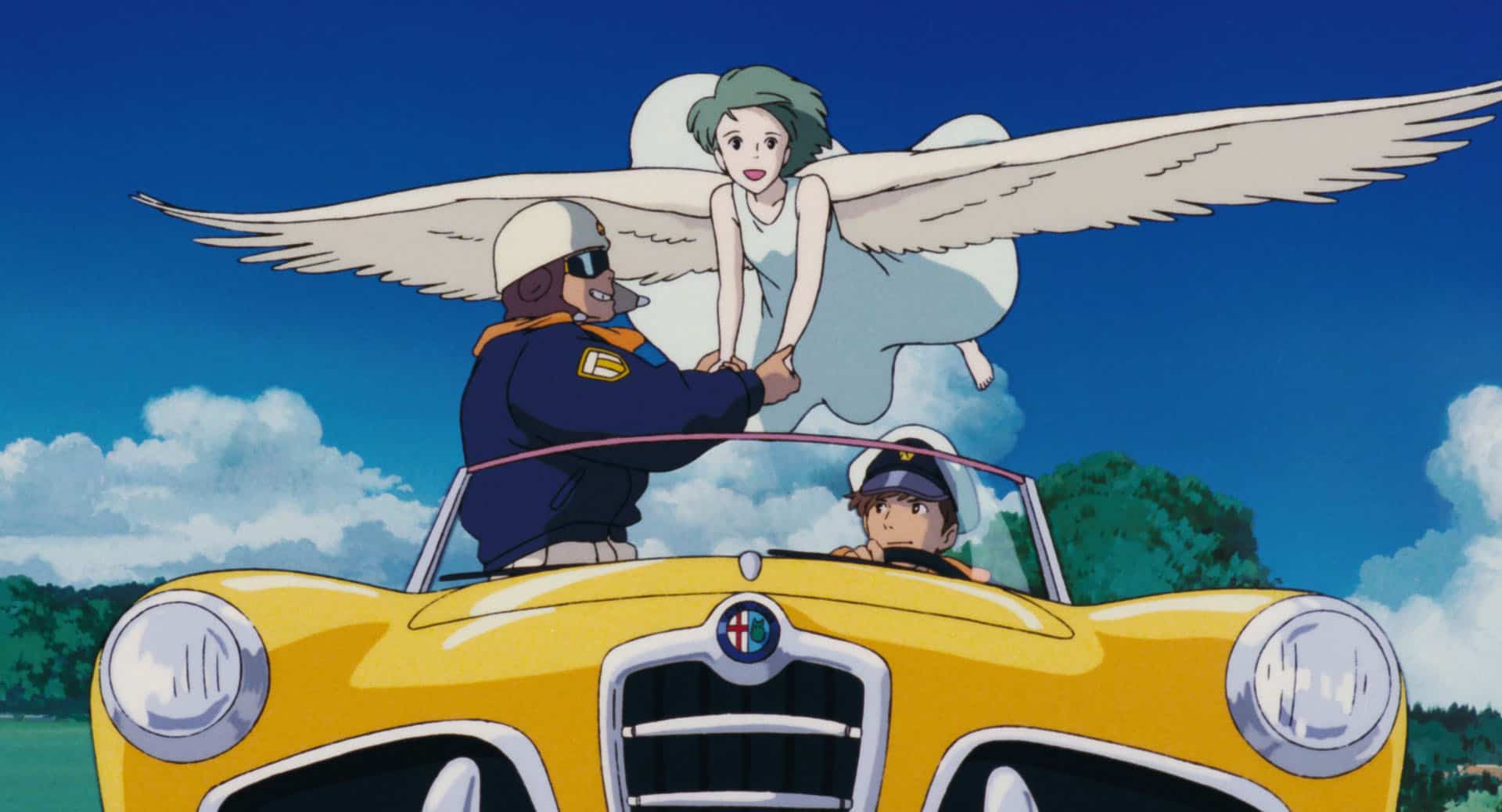CAAMFest 2024 had its own fair share of student films – and this year, we gathered up five (!) student teams to speak to one another. The roundtable consisted of generous description of “student,” including a PhD and a high schooler, MFAs and recent grads. Harleen Kaur Bal, a PhD student at UC Davis, told us about “Unpacking Immigration,” a short film about Punjabi workers at meatpacking plants in California. UCLA grad Emory Chao Johnson recalled their graduation film, “默 (To Write from Memory),” an experimental mother-child film about gender transition. UCLA grad Jacqueline Chan's nostalgic short “Chan is Fishing” meditates upon her father, an aging Hong Kong immigrant, searching for a spot to fish in the desert. San Diego State University crew Laura Skokan, Shao Chiu Yen, and Nguyen Ha Uyen Phan recounted their experience behind “The Fanatics,” a true story-inspired tale about slipping into a Taiwanese cult. Finally, NYU-bound Kaiya Ming Johnson – slipping the interview in-between class time – told us about how she, a high school student, worked with local Asian American artists in her partially-animated project, “like a stone or flower.”
Though this was quite an eclectic group of people from all different parts of California, the student filmmakers' optimism was contagious. All together, the filmmakers recounted their inspirations, defined authenticity, and speculate upon the future of Asian American filmmaking.
This interview was edited and redacted for clarity.
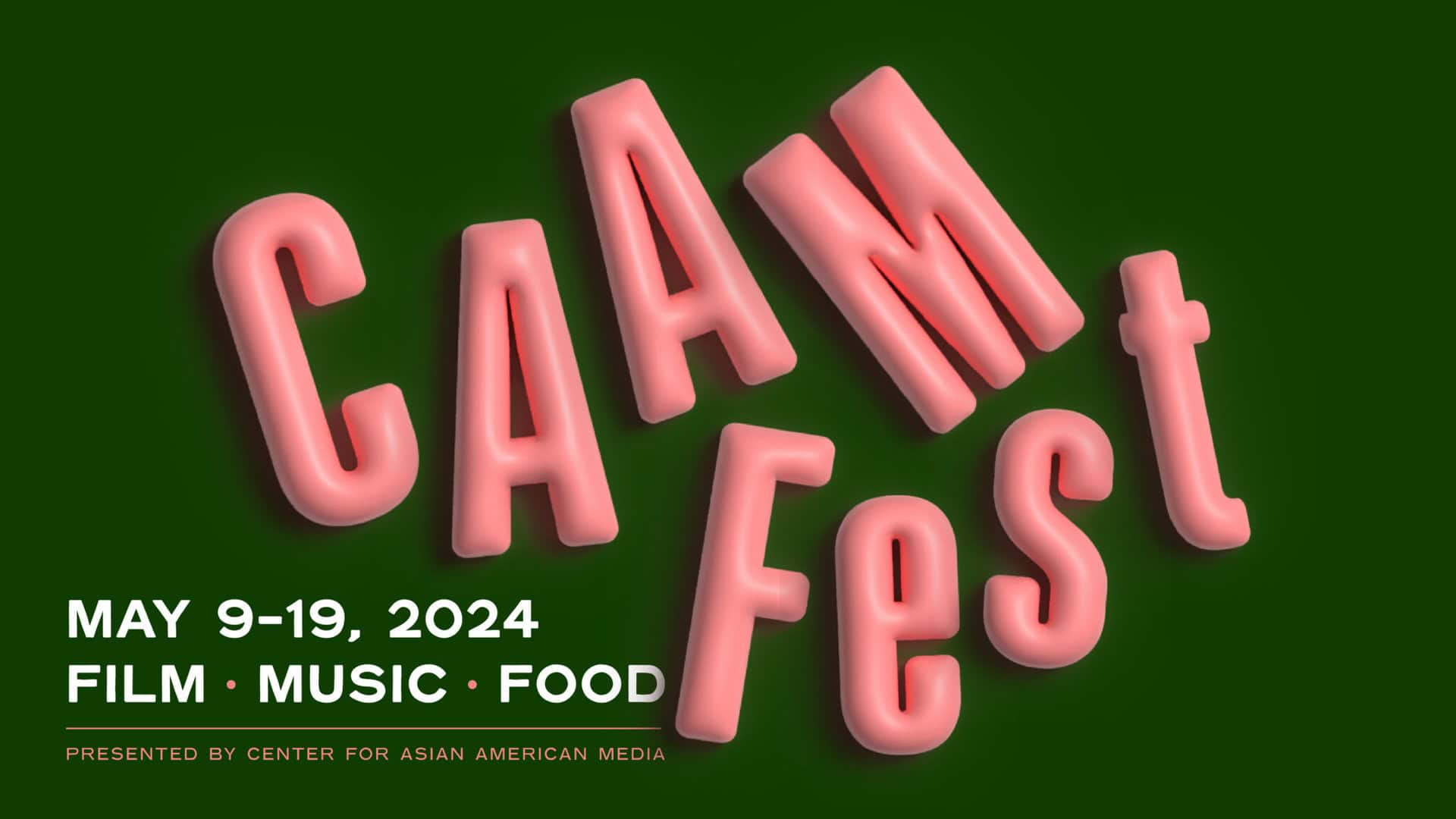
Since we have such a range, I'd just like to hear everyone's sources of inspiration.
Harleen Kaur Bal, “Unpacking Immigration”: Originally, I wanted to look into Punjabi agricultural workers like farmers and harvesters, and then these folks I was speaking to started bringing up COVID and meatpacking. I went into this realm and spoke to the main participant of the documentary, Daljit Singh. I thought we should turn what was going to be a one-minute clip into an actual film.
Shao Chiu Yen, “The Fanatics”: “The Fanatics” is loosely based on my childhood friend's experience from Taiwan, so this is like a true story. She is actively a member of the cult, and her mother tried to navigate it the best she can. I combined my personal experience with the relationship between me and my mother, and also a collaboration with Laura to rewrite the story together.
Laura Skokan, “The Fanatics”: This is such a product of our two brains melting together. Shao's original draft felt horror-ish, rather than a drama [as found in later drafts]. Nothing scary happens in the original draft – there's just a tension underneath everything. I wanted to bring that back. In the film, I was trying to capture anxiety from 1999, a time when I was a kid and now, am approaching as an adult.
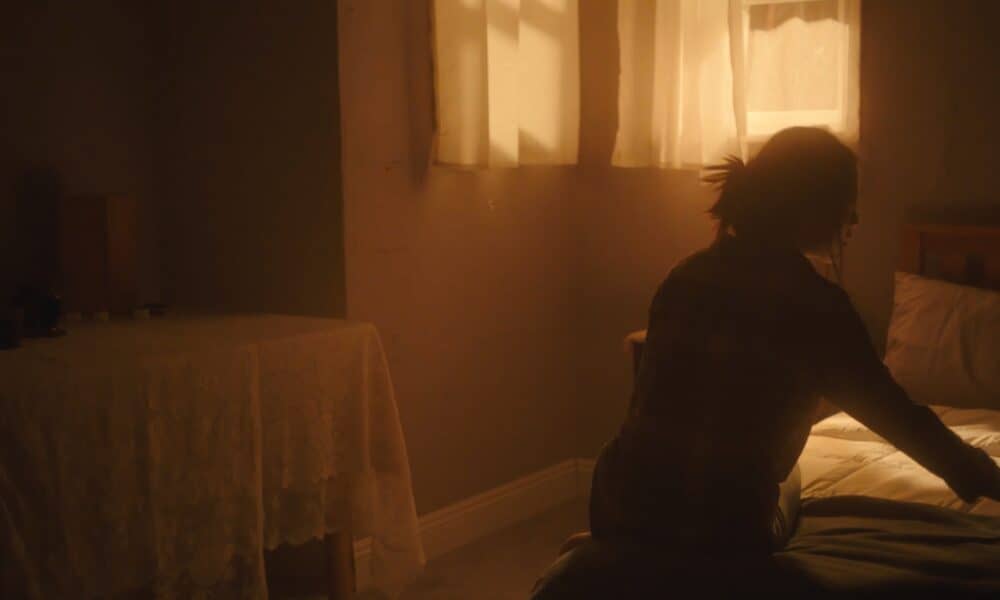
Emory Chao Johnson, “默 (To Write from Memory)”: I tried to pull a bunch of different things from what I had learned and was inspired by – like Chantal Akerman and Tsai Ming-liang, for the mood and mise-en-scene. Because I studied documentary, my primary question was, “In what way do audiences expect authenticity from a documentary film? How can you play with those expectations and subvert them?” So I played with docufiction, and played with audiences – like Cheryl Dunye's “The Watermelon Woman” and Marlon Fuentes' “Bontoc Eulogy.” That all guided me with my interest in cultural and queer theory. In the end, the emotional pull is what lands with a lot of audiences. So it's interesting to see how the question I started the film with has evolved into other avenues for folks to connect with in the film.
Jacqueline Chan, “Chan is Fishing”: There was an image that was asked of me when I first started [my MFA]: a fisherman in the desert. I thought that encapsulated the image of my father. So I wanted to investigate my connection with my dad, as a Hong Kong immigrant.
Originally, it was going to be more documentary; I had all these recordings and interviews with my dad. During the editing process, we put the interviews as a voiceover, and it didn't quite work. My editor and I rewrote the script with the interviews in mind. I had my dad re-record the new lines.
The title, “Chan is Fishing” is a play on the title of an older film, “Chan is Missing,” and plays upon the Chinese American immigrant archetype – and figuring out who he is through this lens.
Kaiya Ming Jordan, “like a stone or flower”: I made the documentary last summer with the support of an arts residency program in San Francisco, Problem Children. I also wanted to explore ideas around Asian Americans in art; that's important for me, and my own heritage. With the help of the residency program, I was able to meet a few Asian American artists, including Agelio Batle and Tamara Chiu. The first interview I had with Elio was a two-hour long conversation about the ability of art to transcend language, and how it pushed all these boundaries as a medium that could not be put into words. It was interesting to interview people of different generations as well – my sister is 14-years old, Tamara is in her 20s, and Agelio is in his 60s. Throughout all the interviews, I wanted to understand their own processes in relation to their age and identity. It was a very freeing process, to be able to listen to the artist and craft a narrative through their words and experiences, rather than with what I had originally intended to do.
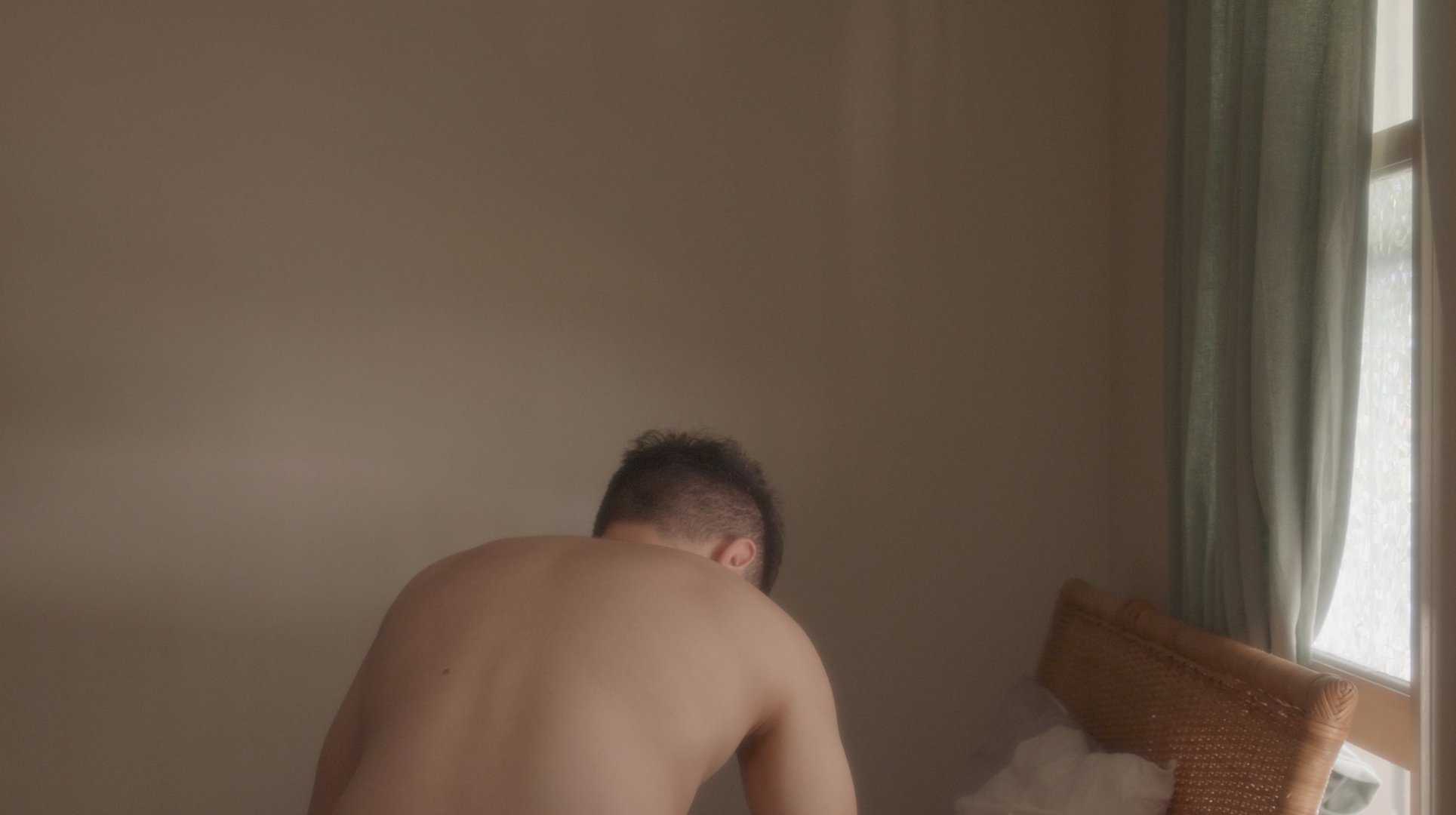
These short films tend to teeter between this boundary between fiction and nonfiction, between the documented subject and your own directorial voice. How did you all balance this?
Harleen Kaur Bal: What a question. I come from a discipline that has a really complicated history with representation: the politics of representation of encapsulating or curating a story about an Other. I originally went into this project hoping to have no narration. I was just really excited about having actual snippets from our interviews – not just from Daljeet Singh but from other people as well. But when you want to succinctly put everything together, you need some sort of weaving together. I grappled with how much narration do I add? Does that take away from the truth of what the participants are saying? I really did try to keep Daljeet's voice at the forefront.
On a separate note, Daljeet Singh actually passed away in the last couple of weeks. It was really unfortunate and super sudden. It has made me think about the film process and the beauty of encapsulating a story, but also how all these stories give a certain immortality to people.
Jacqueline Chan: Immortalizing the act of looking, of framing felt important to me as a director and DP to lens my film. I would think about how to reframe an image of my dad and my biases before, and it felt important for me to be the one behind the camera, framing the shot up.
Kaiya Ming Jordan: I had about 9 hours of interview footage. I would just sit in the car in rush hour traffic on my way in and out of San Francisco — so two hours everyday – listening to the interviews on repeat, to pick out what the artists were more passionate about and light up about what they were saying. I used that to pinpoint what I thought I should and shouldn't include in the documentary, and stay more true to who the artists were.

It comes down to this question that Emory brought up earlier, about “authenticity” – a hot-button topic that's thrown around in discussions of AAPI and cinema. What does authenticity mean for you?
Emory Chao Johnson: For me, I was really hyper-fixated on this idea that “seeing is believing,” and expand upon this through “hearing is believing” and “feeling is believing.” Through the filmmaking class, that's something that, as artists, we are able to get at the heart at. Sometimes there's this hierarchy between what is the most right or correct way – like how certain practices of archiving gives more weight than others, than oral tradition. So I was working through these ideas of what is real, versus what we feel is real.
Nguyen Ha Uyen Phan, “The Fanatics”: There is a hierarchy in production. There are people who have more say in the storyline or editing process. Authenticity in film is about the way something is portrayed in a story and its connection to the target audience, and reflecting what most people believe in it.
Laura Skokan: I want to piggyback off of what Emory said, about “hearing is believing.” so much of how I direct is listening for the actor's voice – and how they think what their character is supposed to be feeling, or playing to what they think the script is trying to do. I think that my job in these moments is to come in and offer them something new on-screen, as opposed to having them focus on this as performance.
Shao Chiu Yen: We have a soundstage on campus, so I wanted to design and build an entire set. Our story takes place in a late 1990s ranch-style house. I did a lot of research on color palettes, furniture, and interior design trends in the 1990s, and the general anxiety of the year 2000. This uncertainty for the future is the undertone of the story – where the characters are seeking a sense of belonging and anything they can rely on.

The general feeling of anxiety is palpable even now. What do you all feel about the future of AAPI filmmaking?
Harleen Kaur Bal: I think we're entering a time where it's very easy to become siloed. The boundaries of identities are becoming more reinforced, but there is also so much more cross-pollination happening. The similarities between different struggles and stories are becoming more apparent. With meatpacking, there are so many similarities amongst the Latinx, Hmong communities as well, but our literature and histories have tried to silo these groups. It might be beneficial to us to think about the ways these narratives have a lot more parallels instead.
Kaiya Ming Jordan: Filmmaking has become significantly more accessible in the last few decades, so more stories will be able to be told. People from different backgrounds and abilities will be able to get their stories heard or tell the stories that are important them. It's crucial to make sure that filmmaking is available to anyone.
Emory Chao Johnson: We've seen in the past couple of years that is bleak in the actual film industry, but I think there's a lot of optimism and potential in actually creating art and in relation to how one might profit from it, in widening perspectives and perceptions of the world. That's motivating to me. As AAPI filmmakers, it's important not to just list their life as a single-wedge issue, but, like Harleen was saying, to think about the coalitional aspect and ways in which we can create solidarity through the stories we tell.
Jacqueline Chan: I wholeheartedly agree. I think this group of people here is a beautiful thing to see.
Shao Chiu Yen: There are new ways of storytelling – new mediums, like shorts, reels, and so on, because of phones. Equipment costs are dropping, because we can record everything and anything at anytime, and we can have so much more exposure to different kinds of cultural life. That's something we can really look forward to: new possibilities along with the new technologies.
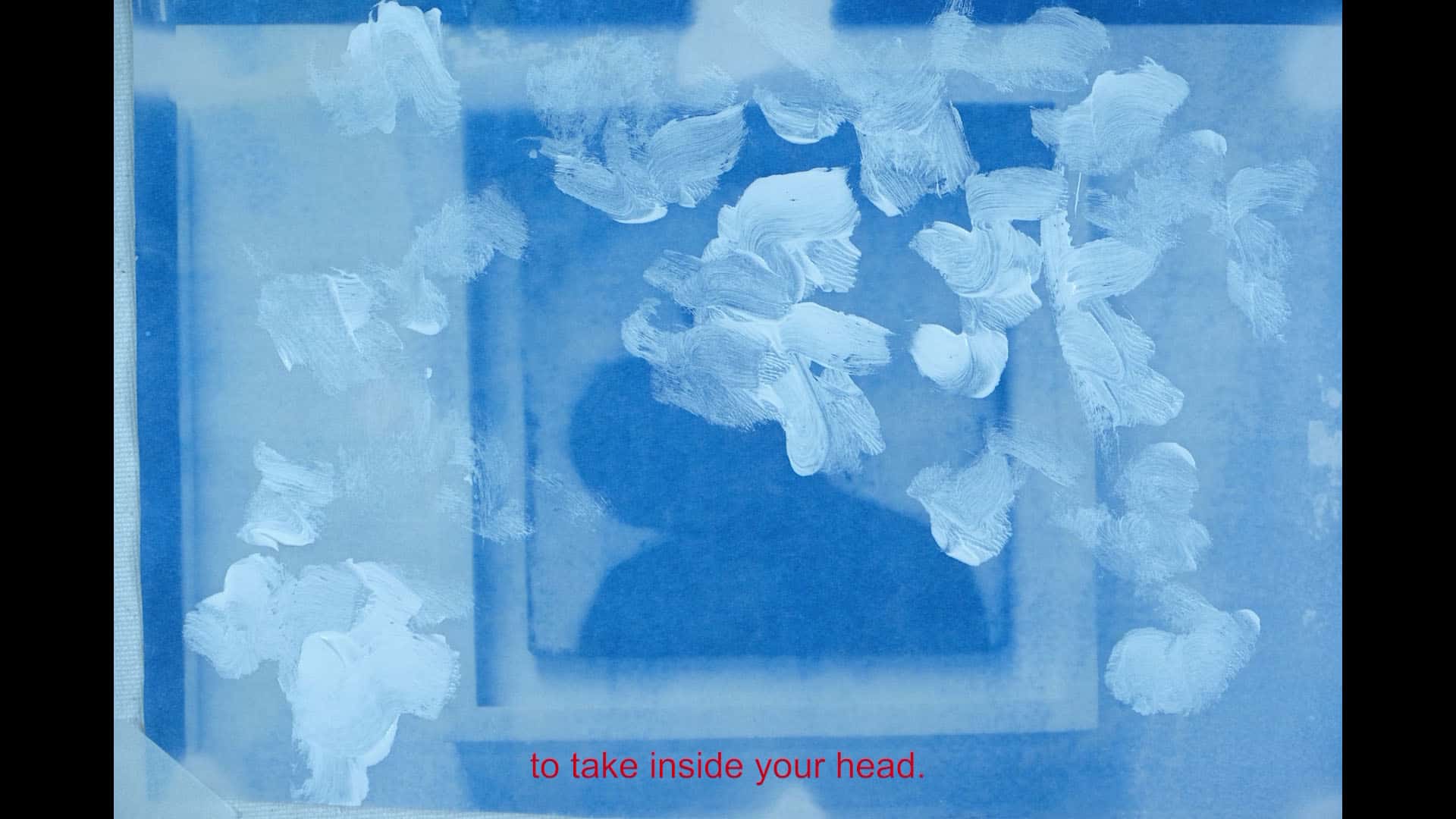
Thoughts on TikTok, anyone?
Shao Chiu Yen: Okay, there's a lot not so great contents on TikTok. But we have to pay attention to shorts and creative ways of storytelling.
Nguyen Ha Uyen Phan: I have a love-hate relationship with that app. It creates a lot of chances for younger and newer filmmakers, and it makes filmmaking a little easier than it's supposed to be. It's kind of like AI – even if you don't like it, you still have to live with it.
Okay, final question: What do you have planned next?
Nguyen Ha Uyen Phan: I already graduated, and I am about to go back to my home country, Vietnam. I hope to find a job over there.
Laura Skokan: I am writing the last two scenes of a feature film today. I am very excited about that. I am also working on my thesis film, a short. I hope to start finding financing for that feature and starting that process. My dream in life is to work as an editor and do post-production, sound design, and directing short films.
Harleen Kaur Bal: It's kind of like potato chips – once you start, you itch for more. I would love to do another film. It can be stressful, but it's so collaborative and I appreciate the concept of working with different people to create something creative.
Jacqueline Chan: I am a freelance DP. Hope to land more projects.
Kaiya Ming Jordan: My immediate future includes graduating from high school in a few weeks. I hope to make a longer length fiction short film. I'm in the brainstorming process – trying to determine what is important to me right now and what kind of film I want to make.
Shao Chiu Yen: I graduated last year, and this year, I started to work as a Production Design assistant on different sets. The industry is still slow because of the strikes. I'm working, but would love to work with anyone else in the Bay Area or LA on shorts or features.
Emory Chao Johnson: Since graduating, I've been trying to see how my artistic voice has changed or developed since being a student. I am trying to expand the ways I work, expanding more people in the process in the filmmaking, docufiction, and experimental filmmaking.
If you're trying to expand your circle, it seems like you have a few people to reach out to here!


